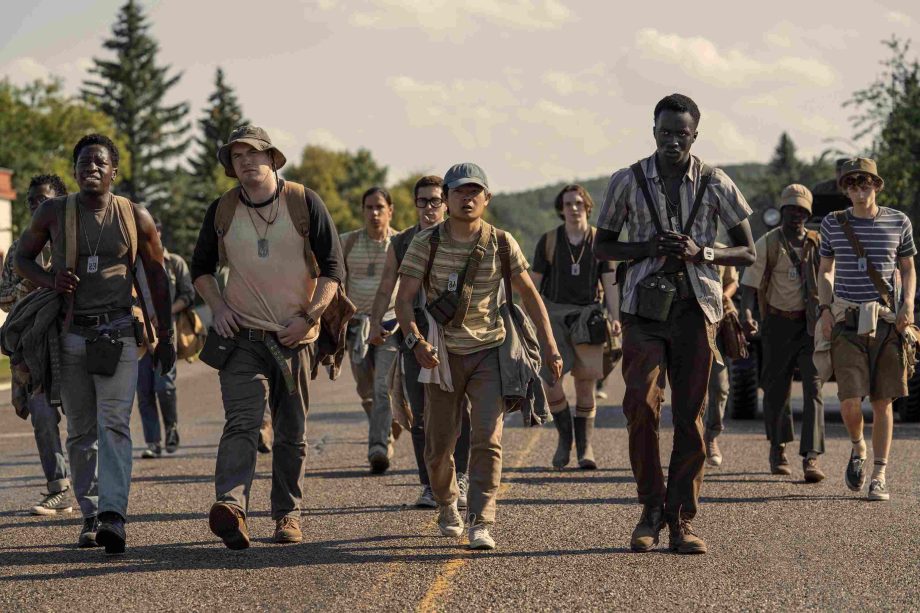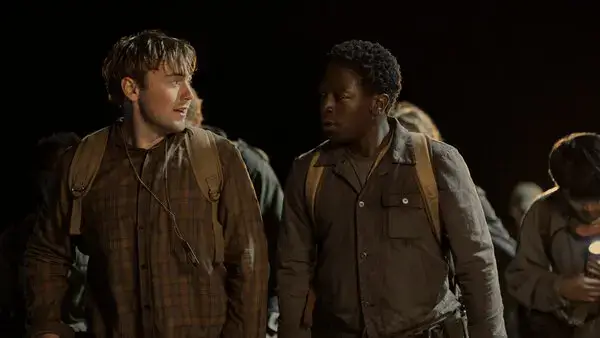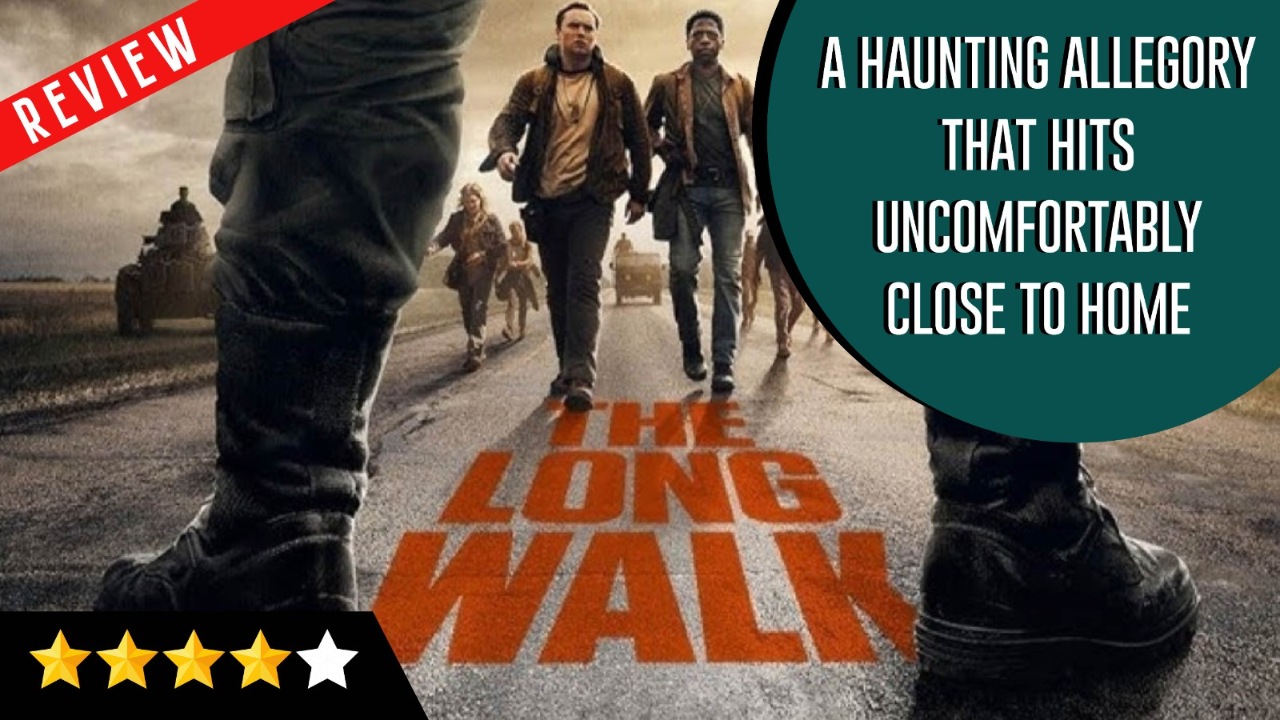Francis Lawrence’s The Long Walk arrives not just as another Stephen King adaptation, but as a grim, unflinching allegory for a world teetering on the edge. Adapted from King’s early pseudonymous novel, this is a film that doesn’t need to shout to be heard — it simply walks, steadily and silently, toward devastation. And in doing so, it says everything.
Set in a dystopian America recovering from a fascist coup, the film follows 100 teenage boys as they embark on a state-sponsored endurance contest — a walk with fatal consequences. The rules are devastatingly simple: maintain a minimum pace, or face execution. No finish line, no breaks, no mercy. Only the last man standing is allowed to live. It’s a chilling premise, and under Lawrence’s steady hand, it becomes a slow, psychological unravelling rather than an action-driven spectacle.

Cooper Hoffman leads as Raymond Garraty, a quiet, conflicted teen whose past guilt propels him forward. Hoffman’s performance is taut and interior — he does more with a glance than many do with pages of dialogue. David Jonsson offers a sharp counterbalance as a sharper, more guarded competitor, his every word soaked in bitterness and intelligence. The tension between them evolves into something tender, tragic, and deeply human.
The Long Walk is austere — endless plains, muted tones, and a camera that refuses to look away. It’s as if the landscape itself has become complicit in the cruelty, a vast witness to the nation’s descent into authoritarian control. The soldiers who trail the walkers are faceless and cold, enforcing the rules with mechanical indifference. Mark Hamill appears as the broadcast-obsessed Major, though his presence borders on caricature in an otherwise restrained film.

But the real terror here isn’t the bullets — it’s the normalization of violence, the quiet compliance, the audience that watches this death march as entertainment. Lawrence isn’t subtle about the film’s politics, but he’s not didactic either. He trusts the viewer to feel the weight.
The Long Walk is not easy viewing. It is slow, deliberate, and, at times, emotionally suffocating. But it lingers long after the credits roll — a haunting mirror held up to a society sleepwalking into its own undoing.
IWMBuzz rates it 4/5 stars.

